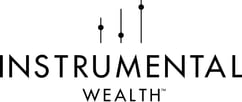Section 179 Bonus Depreciation in 2024: Tax Planning for Business Owners
Section 179 and Bonus Depreciation provide substantial tax deductions for businesses by allowing accelerated first-year depreciation on capital equipment purchases.
Despite being available for years, many eligible business owners miss out by misunderstanding eligibility or usage rules.
This guide breaks down exactly what these provisions entail, who benefits, how recent updates impact planning, and how to leverage them for maximum deductions.
Table of Contents:
Understanding Section 179 Bonus Depreciation
What Are Section 179 and Bonus Depreciation?
Section 179 allows businesses to fully deduct the cost of qualified capital asset purchases like equipment, software, and machinery in the first year up to a set limit, rather than slowly depreciating deductions over 5-7 years. Bonus Depreciation provides an additional percentage deduction in year one beyond the normal depreciation schedule.
Combined, these accelerate deductions to provide immediate tax savings and improved cash flow for reinvestment. They encourage business investments and growth.
2024 Updates & Current Rules for Section 179 and Bonus Depreciation*:
Section 179 Deduction Limit: $1.22 million (increased from $1.16 million in 2023)
Phase-Out Threshold: $3.05 million (increased from $2.859 million in 2023)
Bonus Depreciation Percentage: 60% (decreased from 80% in 2023, falling by 20% each year until phased out in 2027)
This means for 2024:
- A business with $2 million in capital investments could deduct $1.22 million of that immediately with Section 179, and then 60% of the remaining balance under Bonus Depreciation rules in the first year.
Sources for 2024 Updates:
Maximizing Section 179 Bonus Depreciation Benefits
Eligibility: Businesses That Qualify
Nearly all businesses purchasing equipment, software, vehicles, or machinery for active use in operations qualify for Section 179 and Bonus Depreciation, including:
- Manufacturers
- Restaurants
- Medical and dental offices
- Contractors
- Farmers
- Transportation companies
Eligible assets range from computers, furnishings, heavy equipment to company vehicles. Some building improvements may also qualify.
Step-By-Step Calculation
Work with a CPA, but in general:
- Sum eligible capital asset purchases for the tax year
- Claim Section 179 deduction up to current year limit
- Calculate remaining balance after Section 179 claim
- Apply current year bonus depreciation percentage
Be aware of phase-out rules that begin limiting Section 179 at a certain spending level.
Audit Warning Triggers
Avoid flags like:
- Claiming 100% business use for mixed personal/biz vehicles
- Section 179 deductions over revenue level
- Assigning an unreasonably short depreciation lifespan
Maintain detailed asset records confirming business percentages, placed-in-service dates, and cost basis to avoid personal use claims.
Navigating Eligibility Misconceptions
There are several common misconceptions business owners have around eligibility, use cases, and requirements for Section 179 and Bonus Depreciation.
Entity Structure Confusion
Many believe only C-Corps qualify, however C-Corps, S-Corps, partnerships, and sole proprietors all can utilize Section 179 so long as they are filing taxes as an active trade or business.
For example, a freelance consultant organized as an LLC takes equipment deductions just as a manufacturing corporation would.
Industry Limitations
Unlike with some niche credits, Section 179 places no restrictions on which industries can claim the deduction. Service companies such as marketing firms, restaurants purchasing new equipment, construction contracting businesses, and manufacturers all benefit equally.
The key is business use of capital assets rather than any sector focus.
Used Equipment Questions
Used equipment does qualify for bonus depreciation as long as it is new to the taxpayer, i.e. not previously owned, or acquired from a related party.
Any used capital purchase new only to the business also qualifies under Section 179 first year expensing rules.
Only the business claiming deductions needs treat it as new - used machinery still provides benefits.
Integrating Section 179 into your Overall Tax Strategy
While powerful on their own, Section 179 & Bonus Depreciation should fit into a larger overarching plan.
Treating capital purchases as standalone tax events fails optimizing bigger picture planning items like entity structure selection, retirement plan funding, or qualified business income deductions.
It’s all part of a bigger picture. Pulling in a wealth advisor to operate as “quarterback,” working in concert with your CPA, can help you look at your entire strategy through the lens of your long-term objectives (for both your business & personal life).
For more business owner tax planning strategies, check out our additional resources:
- 15 Tax Planning Strategies to Consider
- Potentially Maximizing Gains with Qualified Opportunity Zones
This is not professional tax advice. Please consult a tax professional to address your specific situation.
Instrumental Wealth, LLC (“Instrumental Wealth”) is an SEC registered investment adviser located in Florida. Registration does not imply a certain level of skill or training. Instrumental Wealth may only transact business in those states in which it is notice filed or qualifies for an exemption from notice filing requirements. Information about Instrumental Wealth (inculcating its services, fees, and registration status) is available on the SEC’s IAPD website at www.adviserinfo.sec.gov. There is no guarantee that the views and opinions expressed in this presentation will come to pass. Advisory services are only offered to clients or prospective clients where Instrumental Wealth and its representatives are properly licensed or exempt from licensure. Past performance is no guarantee of future returns. Investing involves risk and possible loss of principal capital. No advice may be rendered by Instrumental Wealth unless a client service agreement is in place.



